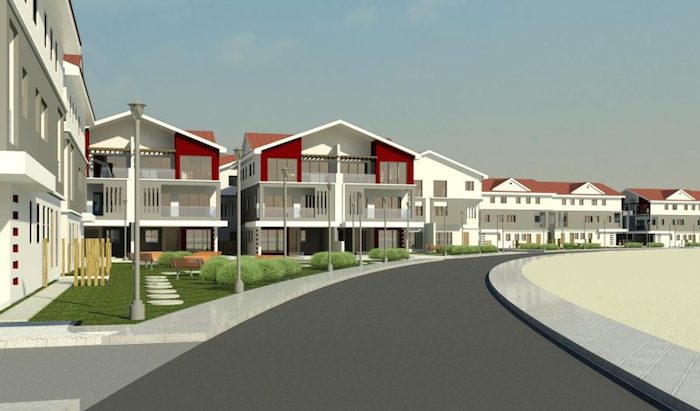… as UHNWIs find opportunities in sub-market
By Tobi Adetunji.
For developers of luxury residential real estate, good times are underway as market dynamics have changed demand in that sub-market with growing investment interest coming from ultra-high net worth individuals (UHNWIs).
From student accommodation to residential care homes, investing in the places people call home is a growing phenomenon. Residential real estate investment is establishing itself as a global real estate asset class, according to this year’s Attitudes Survey conducted by Knight Frank.
Research findings show that, increasingly, the rich in society are realigning their priorities to spend more on real estate to provide their families a sense of security, health, safety, and privacy, meaning that work, socialising and entertainment now take place in their homes.
This is coming as an aftermath of the COVID-19 pandemic, which has had significant lifestyle changes in work, home and play.
The survey shows 59 percent of respondents saying UHNWIs are becoming more interested in investing in purpose-built student accommodation (PBSA); 60 percent cited more interest in the private rented sector (PRS), and 60 percent in senior living.
James Mannix, head of Residential Investment and Development at Knight Frank, says, “Investors are looking for assets that provide an income in a world where interest rates and bond yields are low or negative.
“This sector, where performance is tied to fundamentals such as education, rising employment and the ageing population, provides an investment linked to a demographic rather than an economic cycle.”
In the Nigerian market, recent property transactions have shown an impressive turnout in the luxury segment. Currently, projects undergoing construction in the Ikoyi axis of Lagos are making progress to meet completion dates.
This is evidenced in a few recently completed luxury projects like Sisi Paris and 4 Bourdillon, which are nearing full occupancy. Others in the pipeline have already recorded half uptake and may achieve full occupancy upon completion.
Frank Okosun, senior partner/CEO, Knight Frank Nigeria, says the future of luxury market remains bright, explaining, “As remote working becomes the norm, the need for large-sized houses will grow in demand, necessitating developers reviving previous designs.
“The high-end luxury property market in Nigeria has, however, experienced a glut, with vacancy rate averaging 40 percent at highbrow locations in Lagos and Abuja. This is largely due to the general decline in purchasing power and the continued exit of expatriates from the country, especially in the wake of the pandemic.”
However, there is still demand from the country’s upper class and political elites, which has kept the segment partially active. The high residential vacancy recorded in prime areas is largely attributed to the luxury segment, as supply continues to outstrip demand.
Before now, Nigeria had a very conducive climate for investment, which attracted expatriates, foreign investors into the country. These became major occupiers of luxury market in the country, but economic sentiment and unfavourable policies have largely affected that market in recent times.
“Stricter government regulations have resulted in eliminating economic bottlenecks like money laundering. This has further led to a slow-down of luxury transactions, as more prospective buyers take a more cautious approach,” Okosun notes.
But the current state and level of demand for smaller apartments have inspired developers to redesign luxury projects to meet current emphasis.
Obi Nwogugu, principal at African Capital Alliance (ACA), confirms to that demand level for smaller unit apartments is rising because, “That is what the market wants; as investors, we offer what the market demands.”
The demand for smaller-unit luxury homes is such that, according to MKO Balogun, CEO, Global PFI, about 60 percent of people looking for homes to buy or rent in the property market presently are those looking for small units such as studio, one-bedroom and two-bedroom apartments.
Part of the market dynamics that will drive demand for luxury real estate, especially for those that offer larger footprints and provide more amenities, are private outdoor space, touchless technology, numerous home offices, and health perks, including air and water filtration.
It is expected that buyer-demand will also be driven by lower interest rates, low inventory levels, new wealth from sectors that benefitted from the pandemic, a millennial population that is ready to find a safe haven, and significant increase in second home buying as well as upsizing and new properties offering higher wellness standards.
For investors with patient capital and appetite for off-shore markets, James Pullan, head of Student Property at Knight Frank, says London, UK, is a good destination. He notes that while new development has been constrained by planning considerations, the number of students coming to study in the capital continues to rise.
This, according Pullan, is creating opportunities for investors in PBSA. “Investment continues to flow into the London market, with established assets in great demand,” he states.





